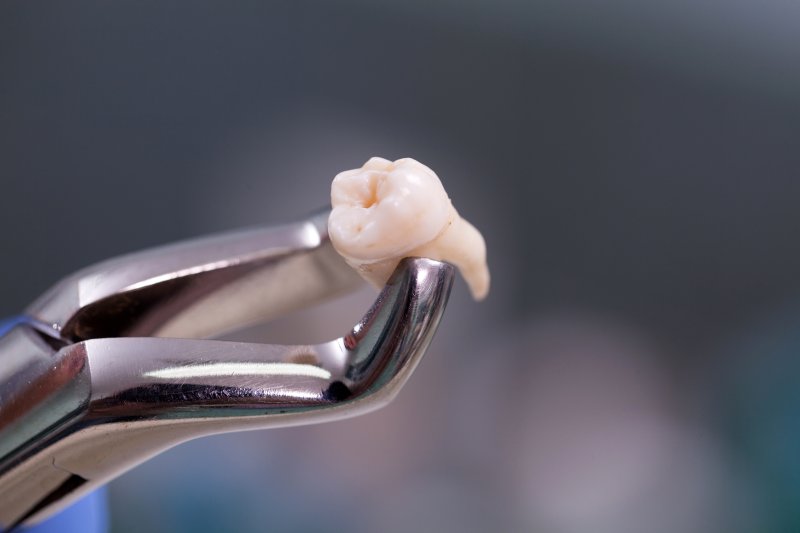
You might wonder why your dentist recommends tooth extraction when you’re not feeling any pain. Dental issues can be deceptive, and pain is not the only indicator of a problem. This is one of the reasons that dentists must go to school for years to diagnose oral health conditions.
Continue reading to discover four reasons why your extraction may be the result of a hidden oral health problem.
1. Tooth Decay
As bacterial plaque releases its acid onto teeth, it can result in small pits or holes in the enamel. Over time, these holes can spread and grow, eventually eating away a whole tooth. Cavities between or behind teeth can often go unnoticed until it’s too late.
Once decay has reached a certain point in the tooth structure, it may be necessary to remove it rather than try to restore it via other treatments.
Decay can cause pain, but once it reaches the nerve of your tooth and destroys it, the pain will disappear, leaving the infection to spread.
2. Gum Disease
Periodontal disease affects over half of the US population in some form. The disease is caused by the bacteria in plaque that builds up on your teeth. If this plaque is allowed to sit, it can reach deep into the pockets between your gums and teeth.
Over time, the disease will inflame your gums and make its way toward the bone of your jaw. This not only begins to eat away at the bone itself but can also attack the periodontal ligaments that hold your teeth in place.
Teeth that become loose in this way sometimes cannot be saved, so extraction is the best option.
3. Risk of Infection
Certain underlying health conditions can cause your body to become immunocompromised. At this stage, even mild colds or infections could turn into serious health risks. If your dentist sees the onset of infection within your teeth, they may make the call to extract the tooth.
This isn’t always the ideal situation, and they will try to save the tooth first. However, if they must make the choice between the tooth and your health, they’ll choose to take the tooth.
4. Tooth Crowding
Due to evolutionary reasons, the jaws of humans have become too short to hold all of their emerging adult teeth. This is especially true when wisdom teeth come in around the time of adolescence.
This may cause your teeth to become crowded, pushing against each other and possibly disfiguring the way your teeth sit in your mouth. This can cause issues with your bite, cause teeth to crack, or even lead to impacted wisdom teeth.
In this case, your dentist may opt to remove teeth to allow space for your smile to right itself and avoid pain and discomfort.
Understanding the reasons why a tooth may need extraction is essential for prevention. Your dentist’s expertise plays an important role in identifying potential issues and recommending the best course of action. However, by staying proactive and addressing these concerns early, you can often avoid extraction and keep your smile looking great.
About the Author
Dr. Ryan Bygness has been practicing dentistry for almost thirty years. After graduating with his Doctor of Dental Surgery from the University of Iowa College of Dentistry, Dr. Bygness received his orthodontic certificate from the American Orthodontic Society. Since then, he’s been expanding his education through multiple professional organizations and academies like SPEAR Education. To schedule an appointment at 32 & You Family Dental and Orthodontic Arts, call (712) 263-3252 or visit the website to explore other services.

